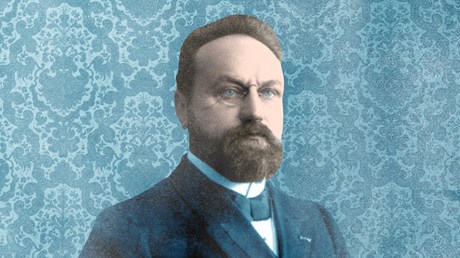As a new biography shows, the Dutch Reformed theologian was adept at navigating perennial tensions of Christ and culture.

Who is Herman Bavinck, and why should contemporary Christians care about him? James Eglinton’s penetrating new study, Bavinck: A Critical Biography, goes a long way toward answering these questions.
Eglinton, who teaches Reformed theology at the University of Edinburgh, has produced a magisterial work that figures to become the leading biography of the great Dutch Reformed theologian (1854–1921). Along with Abraham Kuyper, Bavinck was an important figure in the neo-Calvinist movement in the Netherlands in the late-19th and early-20th centuries. A theological giant in his own right, Bavinck has received increased attention in the English-speaking world, especially following the translation of his four-volume Reformed Dogmatics, but is still too little known (especially outside the Dogmatics).
Eglinton’s biography provides a welcome correction, surpassing previous accounts of Bavinck’s work in several ways. It is impressively researched, drawing from a wide array of unpublished and frequently overlooked material. Related to this, it provides generally better-informed interpretations of Bavinck’s life and thought, identifying reasons to depart from previous scholarship on a variety of issues. It is also well written and clearly organized, guiding the reader through varied subjects without a sense of wasted space or meandering.
The book’s great theme is that Bavinck, as a theologian, was both orthodox and modern. In the introduction, Eglinton sets up the biography as an extension of his earlier book, Trinity and Organism, which had argued against the tendency to separate these two aspects of Bavinck’s thought. Rejecting what he terms the “two Bavincks” approach (or the “Jekyll ...
from Christianity Today Magazine
via


.gif)

.gif)
.gif)
